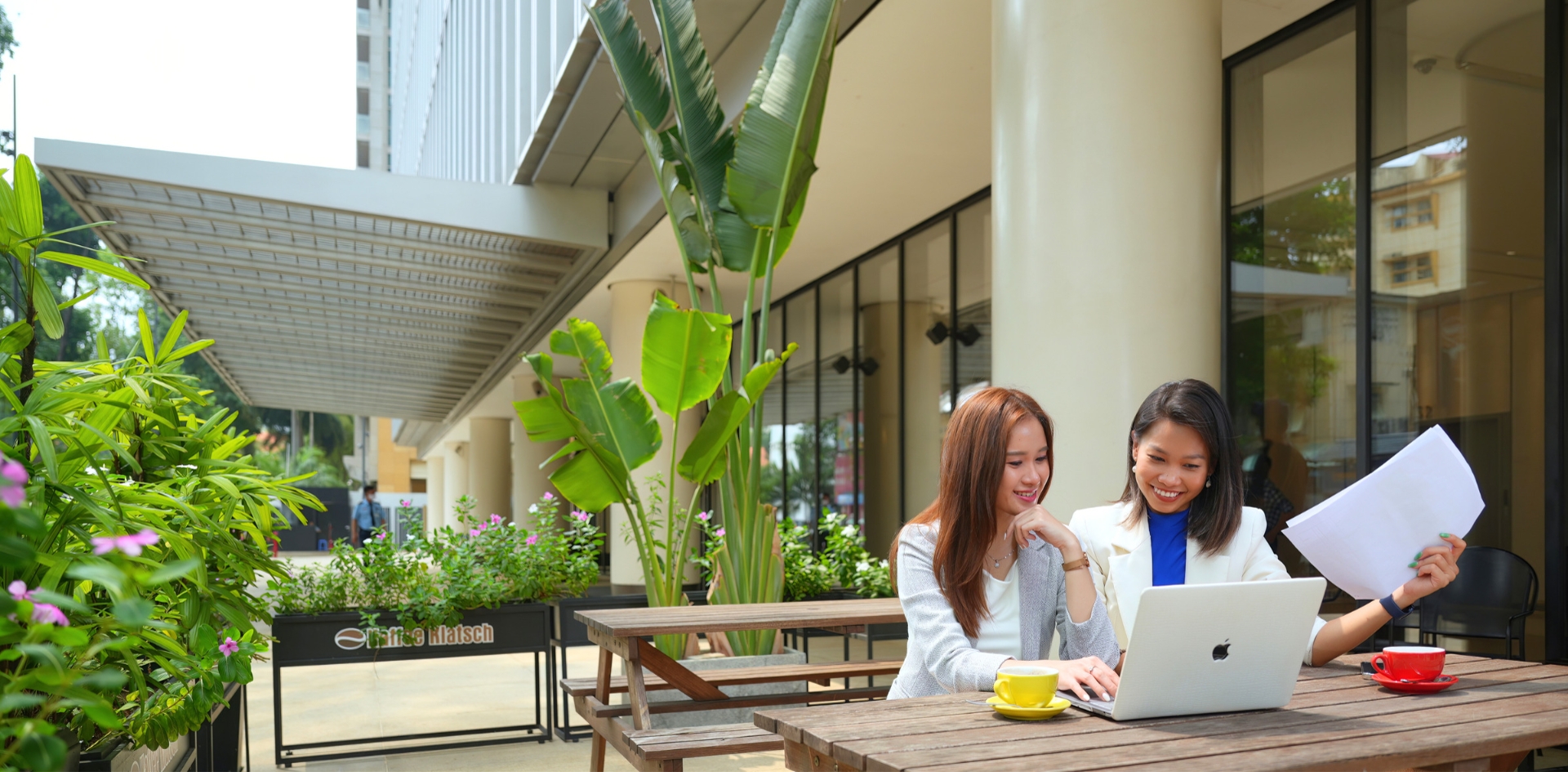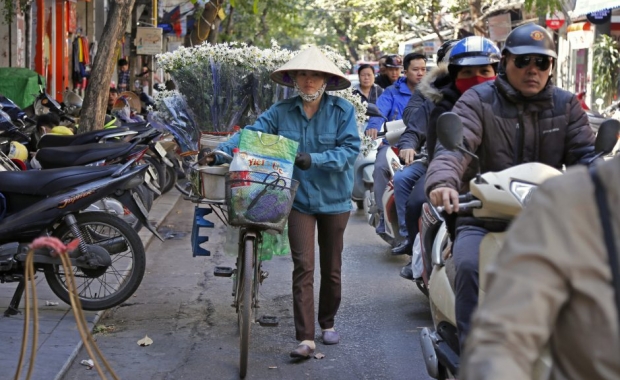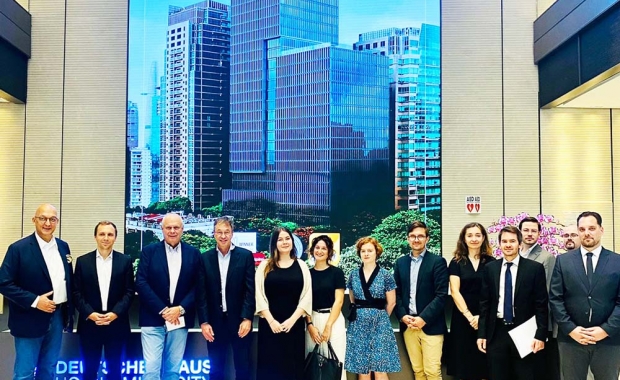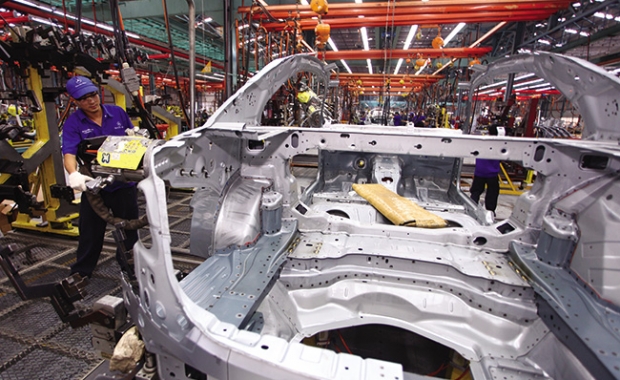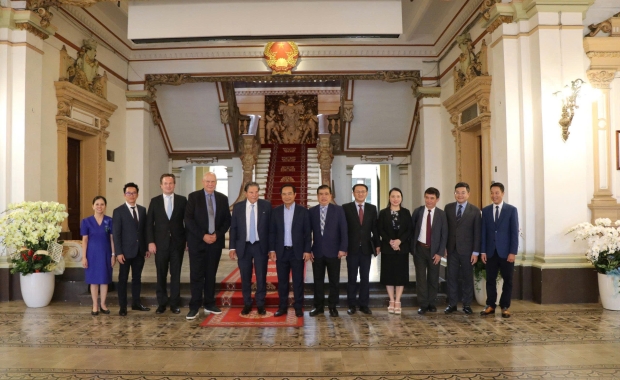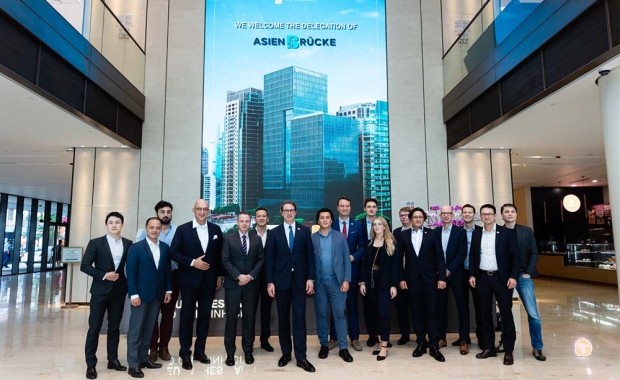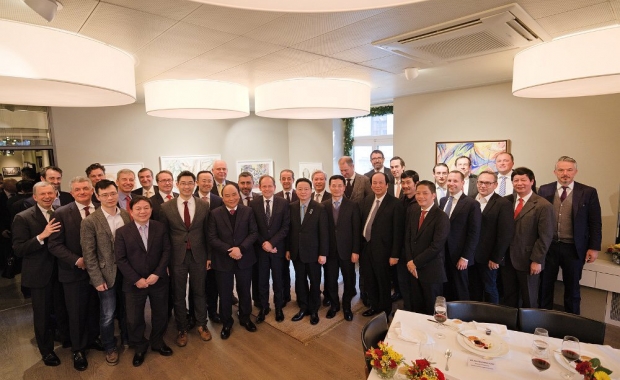GERMANY’S HISTORICAL OPPORTUNITY IN ASIA
20/12/2022
Currently, the works are still performed around the clock on a daily basis. There’s a hectic bustle at the construction site of Deutsches Haus in the heart of Ho Chi Minh City, the former Saigon. Elmar Dutt, Marketing-Manager of Deutsches Haus, is wearing a helmet and protective footwear to lead the tour through the construction site and enthuses: “This will be a lighthouse project for the entire region.” The team of star architect Meinhard von Gerkan has developed a unique, energy-efficient 25-storey high-rise building.
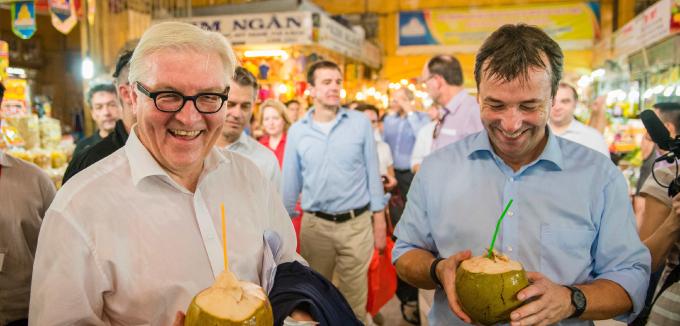
On 1st of August, or maybe a bit later, the opening ceremony will be held. Good timing, as Germany and Europe are increasingly oriented towards Asia. And it is good that way. Because Asia is more than just China. Asia is also comprising of Korea and Japan, who claim neglect in media and politics. And above all there is the growth region of Southeast Asia, which so far has merely been considered by the Europeans as peripheral region to China.
The European rediscovery of Asia are following Trump’s protectionist politics with his turndown of multilateral trade agreements. TPP and TTIP were killed with one stoke of the pen, and thereby alienated his partners in Europe and Asia, while the president was hardly in office.
However, the two sides did not sulk, but instead acted. Motto: If he does not want, then we do. In this sense, a change in thinking has taken place on both sides in the past weeks, despite concerns due to the many acquisitions by state-backed Chinese firms in Europe.
Also Germany is governed by goodwill. The Chancellor, probably not a coincidence, had a telephone conversation with China’s president Xi Jinping prior to her visit of Trump. At CeBIT she met the Japanese head of government Shinzo Abe with hearty embrace, who later continued to travel to Brussels.
Admittedly, trade politics are familiar terrain at the EU. Therefore, the Ministers Sigmar Gabriel and Brigittee Zypries requested the EU Trade Commissioner Cecilia Malmström in a letter "to set an example for open markets and free trade, especially with the important Asia-Pacific region” in early march. The growth and dynamic of the region that are mainly resulting from the predominantly young populations in these countries are giving reason to expect further positive developments “of a kind that cannot be found in any other region in the world at present.” A few days later Malmström has made great efforts while touring through Southeast Asia. In Manila, she agreed with 10 nations of the ASEAN network upon resumption of the negotiations on a free trade agreement, which had been frozen for years.
Suddenly, negotiations and ratifications of free trade agreements (FTAs) with Asian nations are being sped up. For example Vietnam: The government in Hanoi has been counting on TPP. The FTA with the EU was only of desultory interest. “Yet, since a few weeks we are constantly in different ministries,” says Michael Behrens, parting Daimler boss and president of the European Chamber of Commerce. The FTA that had already been negotiated, shall now be ratified as soon as possible.
Currently, the EU is still in negotiations with Indonesia, Malaysia, the Philippines and Thailand. The discussions with Japan are very advanced. Discussions with China are first of all about an investment agreement.
China is the biggest, but most difficult trade partner in Asia. Many in politics and business praise the already famous speech of Davos by president Xi Jinping, who - with a good feeling for PR - advanced as advocate of globalization and free market. “However, the global public is now waiting for China to suit the action to the word.” These clear words are those of Germany’s ambassador in Beijing, Michael Clauss. In a contribution just recently published by the South China Morning Post the diplomat, who loves undiplomatic clear words, is demanding a change of course from China: “If China wants to take a leading role in the globalization, then it has not only to open its harbours and industrial parks for other countries, but also its hearts and thoughts.”
Europe wants to cooperate more closely with China, but in order to do so, China has to open up its markets more - keyword reciprocity – and modify its restrictive politics, such for example towards NGOs. In the light of the American isolationism there is a historical opportunity for convergence between Europe and China.
Also China should not miss out on this opportunity.

